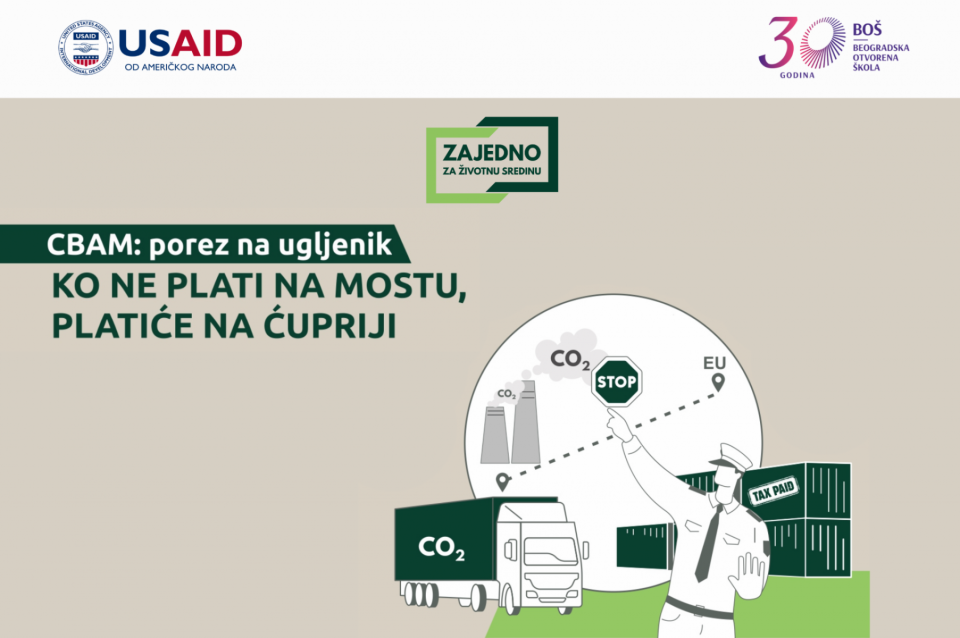The European Union has gradually reduced its greenhouse gas (GHG) emissions over the past two decades, thanks to strict climate policies. However, GHG emissions associated with the import of goods into the EU are constantly increasing. The phenomenon that appears due to the mismatch between the climate policy ambitions of the EU and its trading partners is called carbon leakage. European companies can simply decide to move their production to other countries outside the EU where they do not have to pay the price for harmful emissions. Given the EU's efforts to achieve the vision of the European Green Deal, which calls for Europe to be a climate-neutral continent by 2050, a new climate regulation is being introduced, the purpose of which is to motivate the EU's trading partners to take steps towards reducing dependence on fossil fuels.
The Regulation on the establishment of a mechanism for regulating cross-border carbon emissions, i.e. CBAM (Carbon Border Adjustment Mechanism), was adopted in May 2023 by the European Parliament. Its purpose is to tax goods that are produced abroad and imported into the territory of EU countries if such goods come from energy-intensive industries. The postulate on which CBAM was developed is that all emissions that cause the greenhouse effect are treated in the same way, regardless of whether they come from EU countries or other countries. This means that the same taxation of emissions of imported products as well as goods produced in the territory of the European Union, enables fair competition on the market. The Regulation on CBAM application covers carbon dioxide emissions and, if necessary, nitrogen oxide emissions (dominant in the transport sector). The decree also defines the scope of this mechanism on products of the iron and steel industry, cement, aluminum, hydrogen, and fertilizers, as well as electricity. Therefore, the area of application of CBAM is products from these industries, when the mentioned products are imported into the customs territory of the EU.
The transitional phase of CBAM started on October 1, 2023. This phase will last three years and will serve as a period of adaptation of countries to the CBAM and its provisions. Full implementation will begin in 2026 when emissions will begin to be taxed at the same prices as in the territory of the European Union. The implementation of the Mechanism for regulating cross-border carbon emissions will significantly affect the exports of the Republic of Serbia, especially in the branches of industry with high GHG emissions, due to costs that will affect importers in the EU, and therefore Serbian companies, because their products will become less desirable.
The Belgrade Open School, as part of the project "Together for Environment" supported by the American Agency for International Development USAID, produced the publication "CBAM - Porez na ugljenik; ko ne plati na mostu, platiće na ćupriji", whose purpose is to present the impact of this complex mechanism. On the pages of the publication, you can find the history of climate policies that led to the creation of this climate tool, a detailed explanation of how it works in practice, as well as an invitation to the main actors in the country from the fields of law and economics to establish adequate institutes that will enable the most painless adaptation to CBAM.
The publication is available at this link, i.e. on the website zazivotnusredinu.bos.rs.
Author: Belgrade Open School
Photo author: Belgrade Open School

 381 60 30 65 800
381 60 30 65 800






